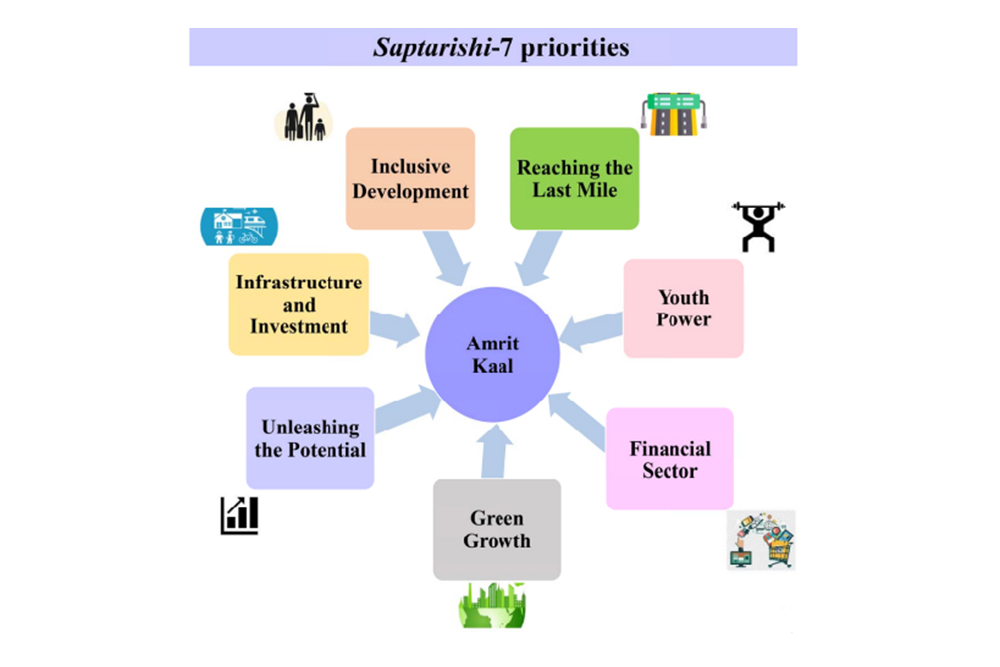Blog

The Indian Union Budget 2023 has been announced and the real estate sector has been eagerly waiting to see what impact it will have on the industry. In this blog post, we will take a look at the key highlights of the budget and what it means for the real estate industry.

The 2023 budget is expected to have a positive impact on the real estate sector in the long term. This can be attributed to several factors, such as increased investment in infrastructure projects, tax incentives for developers, and a boost in consumer confidence. These measures are likely to lead to an increase in demand for housing and commercial properties, additionally, the government's focus on affordable housing is expected to create new opportunities for both developers and buyers. Overall, the 2023 budget is poised to create a favorable environment for the real estate industry, fostering long-term growth and stability. There are likely to be indirect benefits.

Infrastructure & Investment
Capital investment outlay has been increased for the third successive year by 33% to ₹10 lakh crores. The budget has proposed Major Investments in Infrastructure Development, including development of Airports, Seaports, and Highways, which is expected to have a Positive impact on Real Estate.
Support to State Governments for Capital Investment with an increased outlay of ₹1.3 lakh crores. States will be encouraged to build “Sustainable Cities of Tomorrow”.
No tax on income of up to Rs 7 lakh under new tax regime, The Budget 2023-24 has reduced the number of tax slabs under the new tax regime to 6 from the previous 7.
Deduction for Affordable Housing:
The budget has proposed an increased deduction of Rs 1.5 lakh for affordable housing, which is expected to encourage more investment in this segment.
Affordable Rental Housing Complexes:
The budget has proposed setting up of affordable rental housing complexes for migrant workers, which is expected to provide a boost to the real estate market.
Real Estate Regulatory Authority (RERA):
The budget has proposed increasing the scope of RERA, which is expected to bring more transparency and accountability in the real estate sector.
Affordable Housing Fund:
The budget has proposed setting up of an Affordable Housing Fund, which is expected to provide finance to real estate developers for construction of affordable homes.
REITs:
The budget has proposed tax exemptions for REITs, which is expected to boost the market for real estate investment trusts.
Increase in Stamp Duty:
The budget has proposed an increase in stamp duty on registration of property, which is expected to lead to higher costs for buyers.
Tax on Unsold Inventory:
The budget has proposed a tax on unsold inventory, which is expected to impact real estate developers who have a large number of unsold properties.
Boost to Rural Housing:
Ministry of Rural Development -Allocation of ₹1, 59,964 crores. The budget has proposed increased investment in rural housing, which is expected to provide a boost to the real estate market in rural areas.
Moreover, the proposed reforms in the regulatory framework and simplification of the approval process for real estate projects will help to create a more conducive environment for the growth of the sector. The government's focus on reducing the cost of construction materials will also benefit the real estate sector as it will help to reduce the cost of housing and make it more accessible to the common people.

In conclusion, the Indian Union Budget 2023 has been positive for the real estate sector. The government has announced a number of initiatives that will help to boost the housing sector and drive growth in the industry. The emphasis on infrastructure development and the creation of new job opportunities will help to create a positive impact on the real estate sector. So, it is a good time for those who are looking to invest in real estate and make the most of the opportunities available in the industry.

